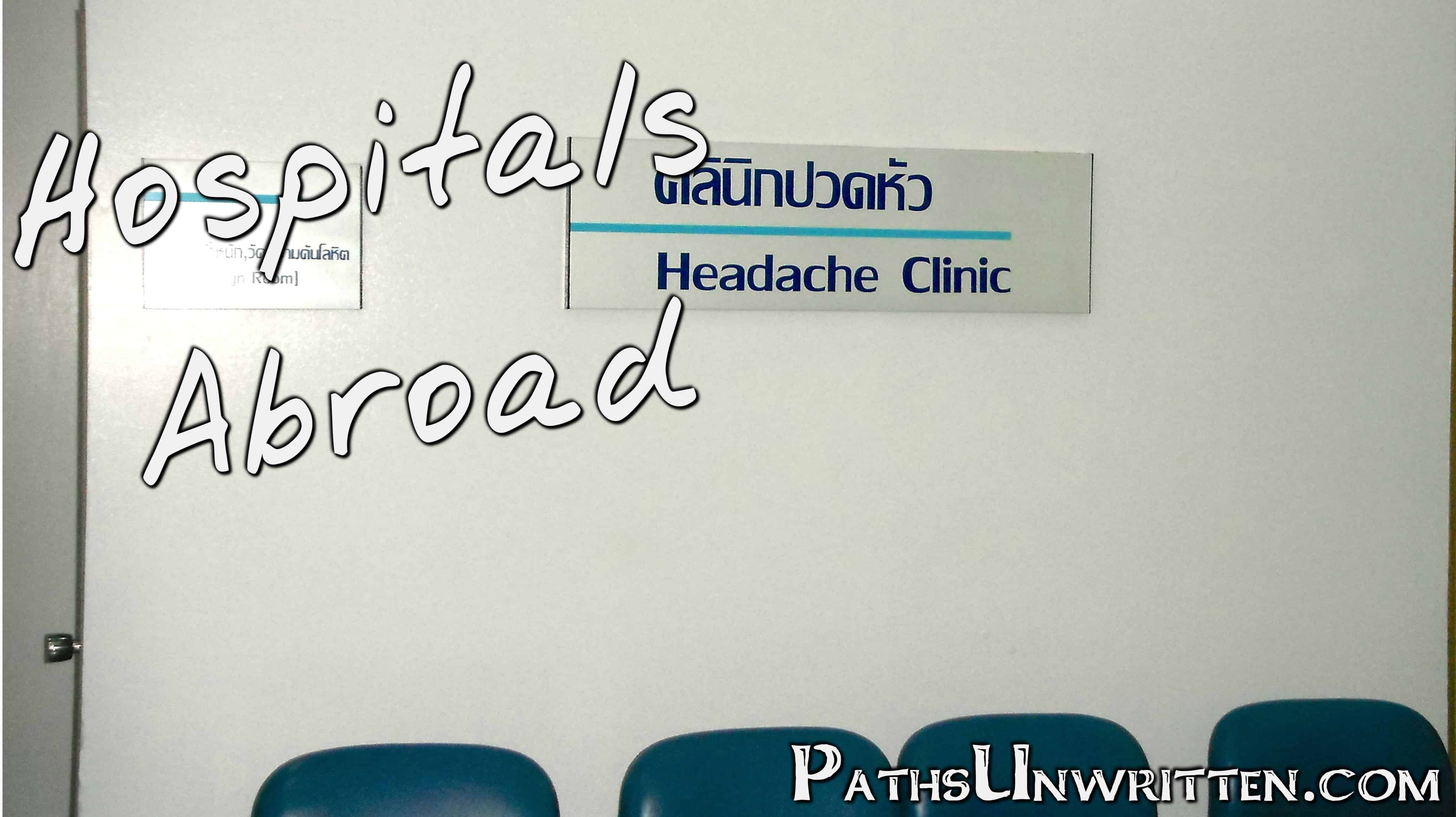Waves of anxiety, far more uncomfortable than my actual physical affliction, coursed through me the first time I had to go to a hospital in another country. This one was in the northern Thailand city of Udon Thani. Sitting in the waiting room with only one other foreigner visible, the anxiety builds up. How well will they understand the problem? Will they have the same resources to treat it? How much will it cost you?
And most importantly, what if something goes wrong?
Two days before arriving there, I had been attacked or ambushed by some animal who leapt from the dark forest as I crested Phanom Rung Mountain on a motorcycle after dark. It hit my chest, but a little higher on my face, and I certainly would have wiped out on the dark road. Still, the animal had drawn blood and I was in no rush to take my chances with rabies only 2 weeks into my time in South East Asia.
Everyone knows that hospitals are not a pleasant place to be whether for yourself or for someone you care about. But, seeking one out in an unfamiliar country is another level of unpleasantness. They are one of those factors that you might glance over briefly in your planning, but you certainly will never decide on your chosen hospital before embarking.
The post exposure rabies vaccination the hospital in Udon Thani started me on needed to be administered in 5 injections over the course of several weeks, and I had no intention of staying in Udon for that long. So, I needed to find a new one in Bangkok to continue.
A Google search of the nearest hospitals brought me a 20-minute walk from the JL Bangkok hotel to the Dr. Panya Hospital. And while the hospital in Udon Thani had made me nervous, this one outright frightened me. It doesn’t look so bad in the Google Streetview photos now, but then, and in person, it looked decrepit, dirty and certainly no place I wanted to have a series of needles injected into my body.
Returning to the Internet to find something of a higher standard, I found the Ramkhamhaeng Hospital a couple km in the other direction. Finishing the rabies post-exposure vaccinations there, this quickly became my trusted go-to hospital when needed, even when I first moved to the opposite edges of the city. They also took exceptional care of my course mate, Christy, when she suffered severe dehydration from a parasite gotten on a trip north.
Becoming settled into a place as long as I was, you become more comfortable with the familiar local facilities and taking friends’ recommendations on where to go for small maladies. The occasional x-ray or muscle pain or just a general, though prolonged cold, I nonchalantly would go to the neighbourhood clinics or recommended hospitals.
But, what happens when you once again receive an injury in a place that’s not only remote, but in a country where health care is generally accepted as lower tier?
This is what happened to me in Phonsavan, Laos. About 20 km from the town, independently riding a motorbike down a road to the secluded Plain of Jars, the combination of sandy terrain and jagged rocks caused me to fall from the bike at a fairly high speed. My helmet was on and I managed to catch myself on the rocky ground with the pinky-finger side of both hands.
For the next 45 minutes to hour I waited there trying to figure out how bad the damage was. Both hands and wrists were painful in most positions. I couldn’t move either pinky. I was convinced that I had broken or otherwise severely injured one or both of my hands.
The next day, I went to the only local hospital. The Lao-Mongolian Friendship Hospital did not inspire me with hope about its quality. Still, I needed to find out.
On entering, I was quick to see that my condition seemed to be among the least serious there. People with open wounds, amputated limbs, skin (or otherwise) deformities, all populated the waiting room and certainly needed more attention than I did.
Waiting humbled on a bench outside for the x-ray technician to arrive, the occasional patient was wheeled by or hospital worker passed, looking at me strangely as if they would have never figured a foreigner to come to their hospital.
Within 30 minutes of the radiologist arriving, I had the x-rays taken, printed and read, confirming that there was no fracture or otherwise. Just a harsh impact bruise on my bones and muscles. They prescribed me some mild painkillers and sent me on my way.
Since that visit to the Lao-Mongolian Friendship Hospital, I’ve certainly been much more relaxed about visiting medical facilities in Thailand, though of course it’s still not something you look forward to. To date, I’ve been to 7 different foreign hospitals (and various smaller clinics), many several times, for a variety of things. It’s never fun, but as long as you are aware of what you’re getting into and conscious of whose hands you put yourself in, I’ve found that it always seems to work out for the best.
















Hi Ben,
Did you have travel health insurance while in Bangkok, Thailand? Who did you go through? I plan on traveling to Bangkok really soon and want some advice on travel health insurance. Thank you.
No, I never had any sort of travel or health insurance during the time I lived in Thailand. Only after a few thefts in Cambodia did I ever break down and buy any. While hospital costs are quite cheap in Thailand and Laos, I was still paying out of pocket for anything that I went in for, they might not be so affordable in other neighbouring countries. It’s probably worth the US$2-300 for that insurance if you’re going for a while.